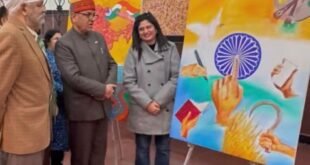1. Humanity and Artificial Intelligence: Klara and the Sun by Kazuo Ishiguro
Currently being developed into a film by Taika Waititi, Klara and the Sun tells the story of Klara an Artificial Friend who observes human behavior from a shop window before being chosen by a sick teenager. Through Klara’s AI lens, the novel contemplates empathy, love, and emotional intelligence.
Nobel Laureate Kazuo Ishiguro crafts a quiet but powerful tale, posing a profound question: If machines can love, does the origin of that love matter? The upcoming film adaptation promises to explore these themes in a deeply emotional way, blending tech-driven futurism with soulful reflection.
2. First Contact, Philosophy, and Politics: The Three-Body Problem by Liu Cixin
Liu Cixin’s The Three-Body Problem, part of the Remembrance of Earth’s Past trilogy, presents Earth’s initial contact with an alien civilization called the Trisolarans. However, this isn’t just a tale of aliens it’s a complex web of physics, philosophy, betrayal, and global politics.
The Netflix adaptation launched in 2024, receiving critical acclaim for its balance of hard science and dramatic storytelling. Season 2 is currently in development. This story doesn’t just speculate on extraterrestrial life; it explores how humanity might fracture or unite under cosmic pressure.
3. Memory and Alien Intelligence: Solaris by Stanisław Lem
Set aboard a research station orbiting the enigmatic planet Solaris, Lem’s iconic novel explores the mystery of a sentient ocean that reads minds and manifests memories. Instead of focusing on alien life as an external threat, Solaris turns inward, using the alien presence as a mirror for human guilt, trauma, and loss.
Two films have been adapted from this novel: the philosophical 1972 version by Andrei Tarkovsky, and a more intimate 2002 take by Steven Soderbergh. Both interpretations highlight the novel’s central idea: to understand the unknown, we must first understand ourselves.
4. Language, Time, and the Human Condition: Story of Your Life by Ted Chiang
The acclaimed film Arrival (2016) is based on Ted Chiang’s short story Story of Your Life, featured in his collection Stories of Your Life and Others. The narrative follows a linguist tasked with deciphering an alien language leading to a mind-bending discovery about how language can shape our perception of time.
Chiang’s stories seamlessly blend scientific concepts with emotional resonance. In Arrival, the timeline isn’t linear; it’s circular prompting viewers to question fate, memory, and the cost of knowledge. His fiction proves that science can be as emotionally moving as it is intellectually complex.
5. The Blurred Line Between Human and Machine: Do Androids Dream of Electric Sheep? by Philip K. Dick
Immortalized by Blade Runner (1982) and its sequel Blade Runner 2049, Philip K. Dick’s novel follows Rick Deckard, a bounty hunter assigned to retire synthetic beings nearly identical to humans.
What makes this story compelling isn’t just its futuristic setting it’s the emotional depth of the androids themselves. With themes of empathy, detachment, and identity, the novel asks: At what point does artificial life deserve the same rights as human life? It’s a powerful exploration of consciousness that resonates even more today in the age of AI.

Why These Sci-Fi Stories Matter More Than Ever
In an era dominated by rapid advancements in artificial intelligence, robotics, and interstellar discovery, these sci-fi tales are no longer far-fetched fantasies they are urgent meditations on near-future realities.
Each adaptation brings something unique to the table: emotion, philosophy, tension, or spectacle. But at their core, they all share a common goal to ask difficult questions about existence, technology, and what it means to be human in an increasingly synthetic world.
SEO Keywords:
- Sci-fi books adapted into movies
- Science fiction screen adaptations
- Sci-fi novels made into TV shows
- AI and humanity in fiction
- Netflix sci-fi series 2024
- Blade Runner novel origin
- Best philosophical sci-fi books
 Digital Scoop India Official Platform of Digital Scoop India Featuring Latest & Best News #Articles #Bytes #Entertainment #DigitalScoopMagazine
Digital Scoop India Official Platform of Digital Scoop India Featuring Latest & Best News #Articles #Bytes #Entertainment #DigitalScoopMagazine



